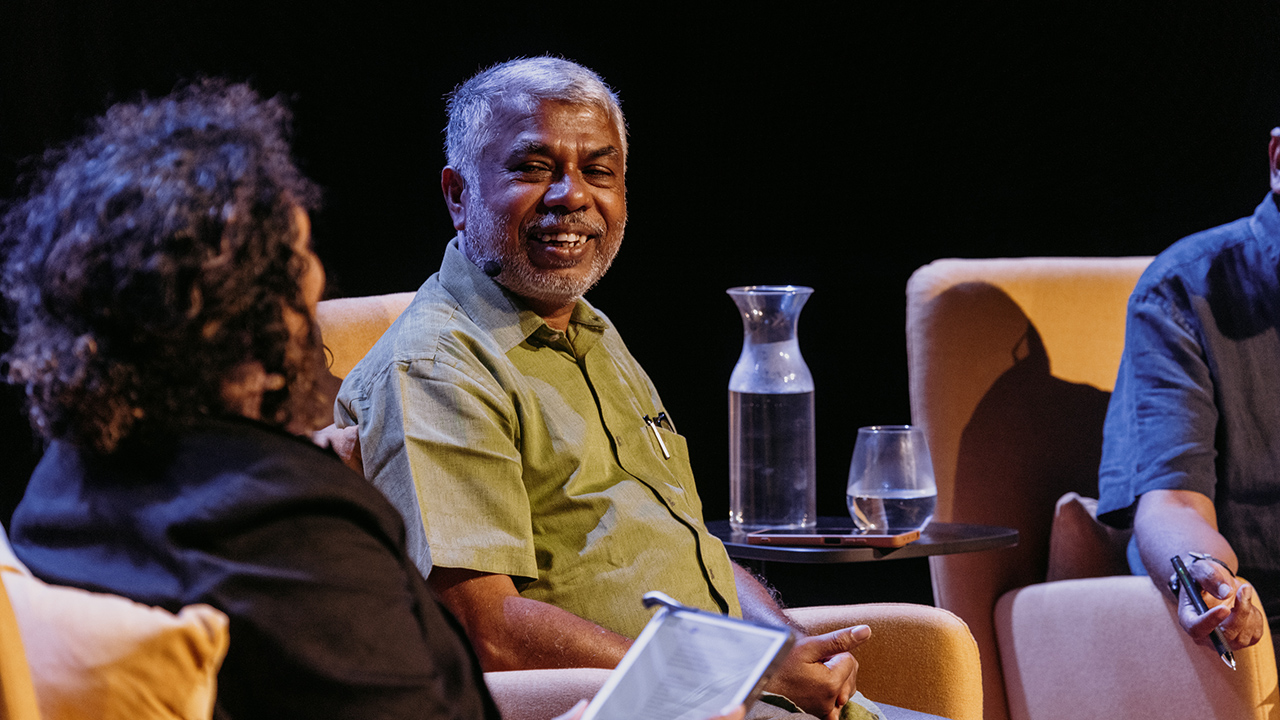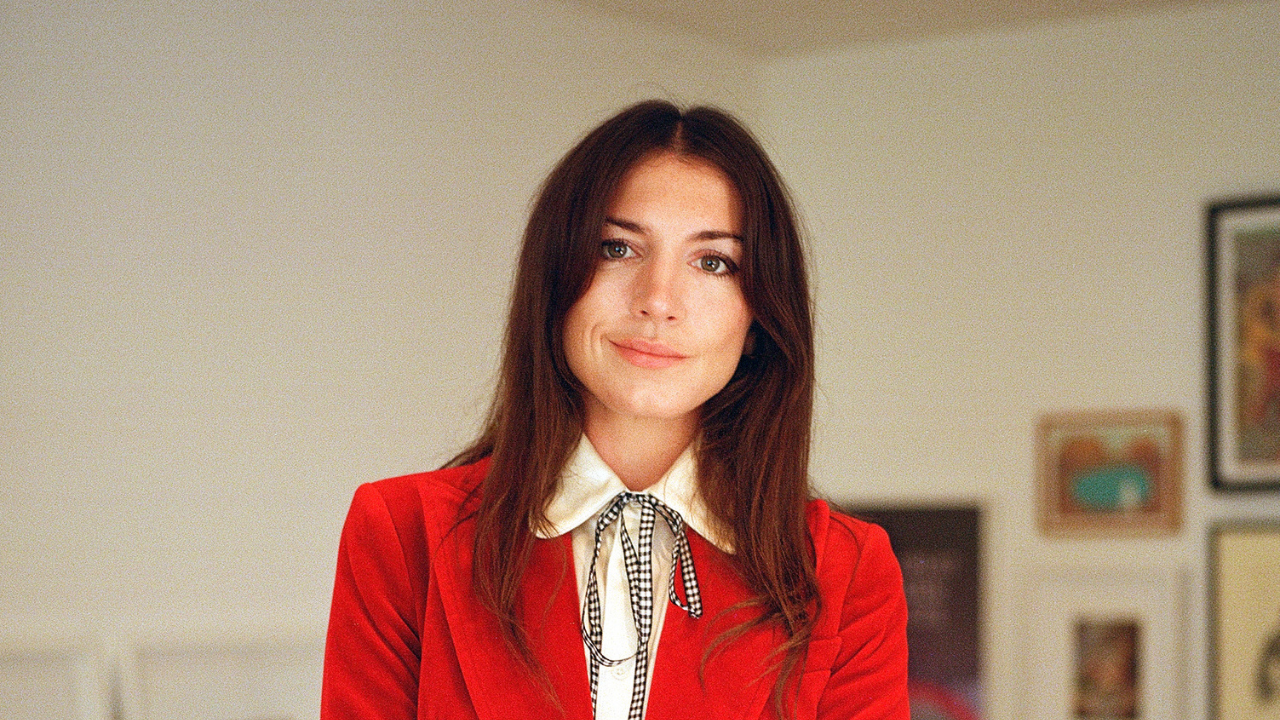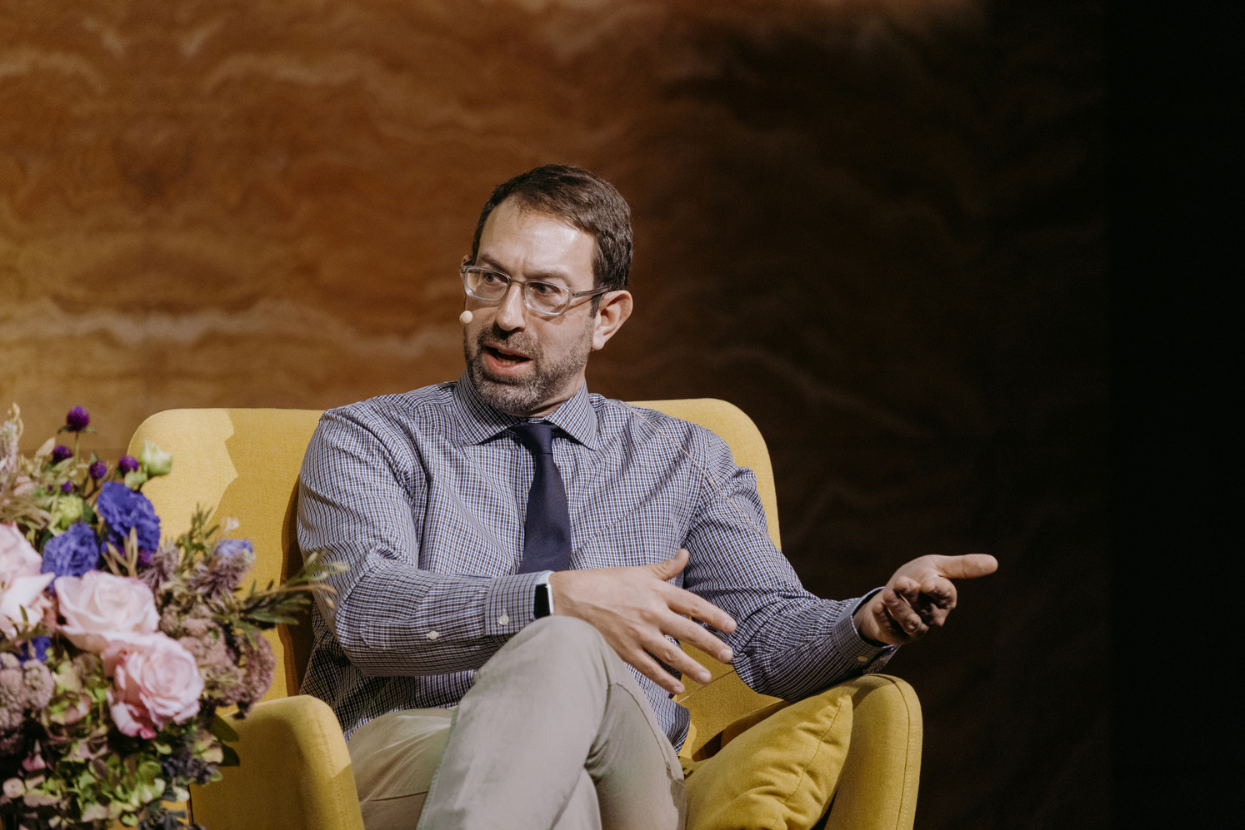Tema Milstein | Flying your nature freak flag
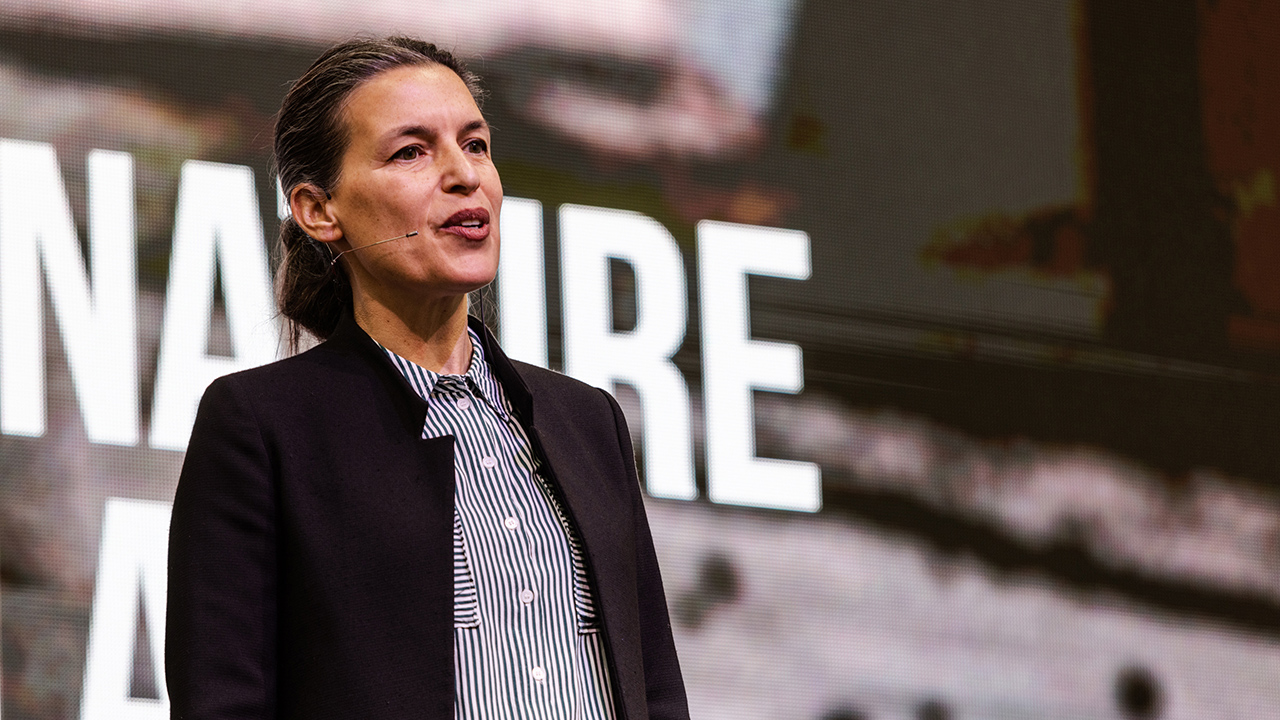
Human exceptionalism perpetuated through cultural and institutional systems is killing us, and bringing much of life on Earth down with us.
If we are going to save the planet, Tema Milstein says we need to start hugging trees. Westernised humans tend to believe they are separate from nature, which shapes thinking and actions toward the environment. But seeing the world with humans at its centre has massive ramifications – from climate crisis to mass extinction. What stands in the way of more of us remembering we are embedded in the natural world and its intricate networks? And how do we override anthropocentrism, and start seeing ourselves as one with the flowers?
This talk was a part of Unthinkable, an event of short talks in the 2022 Festival of Dangerous Ideas.
Transcript
UNSW Centre for Ideas: Welcome to the UNSW Centre for Ideas podcast. A place to hear ideas from the world's leading thinkers and UNSW Sydney’s brightest minds. The talk you're about to hear, Flying Your Nature Freak Flag, features UNSW Sydney’s Tema Milstein and was recorded live. This talk was part of Unthinkable, an event of short talks in 2022 Festival of Dangerous Ideas.
Tema Milstein: These are dangerous times, for us and for our living planet. But what if I told you that one way to turn this around, is to get dangerous? I'm talking about a good kind of danger, the kind that builds courage and leads to change. To protect Earth, we all need to get a little freaky. Specifically, we need to embrace our inner nature freak. And this shouldn't be too hard, right? Not too dangerous? But it seems it is. I've been studying culture and how we communicate about nature and other species for two decades. And what I've learned is, most people in industrialised, westernised cultures find it challenging, and sometimes even dangerous to express care for the more than human world. And this challenge around expressing connection happens even in nature loving activities like eco-tourism, around wild whales and dolphins, animals we refer to as charismatic megafauna, precisely because we're drawn to them. Our connection is so strong. Some people's efforts to protect whales include placing their own bodies between them and harpoons. In fact, it was these very acts of protection, and around the same time, our first glimpse of the whole planet Earth from outer space, that birthed the contemporary environmental movement half a century ago.
But before we talk about whales, I want to share a story about worms. Some years ago, at a university in the Pacific Northwest of the United States, a student and I were leaving class on a rainy day and after heavy rains in this part of the world, millions of earthworms squeeze up through cracks in the city sidewalk. It’s thought the worms are taking advantage of the wet surfaces to move across distances otherwise unnavigable. And as they stretch their bodiesand shiny lines across the pavement, most passers-by step on them without notice or care. But the class we just finished was about environmental relations. My student brought up the worms saying that on these rainy days, she took forever to get home and she'd stop and kneel by every worm to gently remove them from harm's way. Whenever someone walked by, she added, she just pretended she was tying her shoe. This student stood out as someone brave and upfront and expressing her truth. She was a queer firefighter, and faced gender, sexuality and occupational prejudices every day. So it was striking that during these worm saving moments, she found this prejudice, of worms being unworthy of consideration, far more challenging to break through. She masked her feelings for another species, hiding her actions away every time another person walked by.
From city sidewalks to places we seek out wildlife. My research has found most people overwhelmingly discipline themselves and others to have a mastery view over nature, to be human centred or anthropocentric. Think about the last time you stopped in public to hug a tree or even to smell flowers. If you did, it might have felt a little dangerous. How might other people react? Would they look at you funny? Being a nature freak, of course, gets far more dangerous. Some who care and act to protect nature are jailed, some killed. But the reality is that hiding your nature freak is the most dangerous thing you can do. I'm going to explain what's standing in the way of letting our freak flags unfurl. So we can do something about it.
So let's start with who we are. We're all pretty aware of our social and our cultural identities, our races, ethnicities, class, gender, sexuality. However, most of us pay little to no attention to our ecological identities. If we're brought up in urbanised, industrialised, westernised cultures, we're raised to think we are separate from nature. And growing up with this worldview, we learn to think the environment is out there somewhere. It's the backdrop for the human drama, a bank of resources, it's there to serve us. We forget we're actually ecological beings, that all the ways we behave have impact; from composting to over-consuming, from creating circular economies, to crashing our climate. This prevailing common sense that humans are separate from and better than nature, informs the dominant ways we think, talk and act with immense dangerous effects, from global pandemics to mass extinction. A protest sign familiar in recent years reads, ‘we need system change, not climate change’. And we must reimagine our political economic systems. If we're to tend to the ecological crises, these various systems create it. But it may be harder to understand, how it is also our dominant cultural systems, the very notions of who we are, that must simultaneously change.
My research traces how our nature freaks are kept in line with everyday communication in Western cultures. By ridiculing, labelling, and silencing others who get nature freaky, to doing the very same to ourselves. I do studies in the highest concentration of whale tourism in the world, with tourists coming specifically to see endangered orcas. Yet in this place where people travel far and pay hundreds of dollars to get the chance just to be near orcas, they often make fun of each other when they're a bit too exuberant. For instance, those moments when people unselfconsciously ooh and ah, when seeing orcas in the wild for the first time, locals jokingly call this the Orca-gasm. In addition, when people speak of their care for whales, they often wait till they're away from others, and even then label themselves as silly, or as fanatics, or as addicted to whales. Even volunteers who dedicate summers to monitoring endangered orcas avoid talking about feelings of connection in front of each other, saying they don't want to sound ‘woowoo’ or weird. This disciplining extends to scientists, industry activists, who risked being seen as too into nature to into orcas, a common term used to label such enthusiasts is Dork-as.
Disciplining ourselves and others isn't reserved to whales and worms. It applies to wild flora, fauna, and of course, the environment itself. A person learning about native plants and plant medicine said, this is going to sound a little crazy. But after learning more about these plants, I feel different when I'm walking in the hills. I no longer feel alone. I know that sounds kind of out there. But now I feel like I'm with friends. We know in westernised societies expressing such connection sounds out there. And that's because we know there's a clear cultural boundary drawn between humans and nature. And we know when we've crossed that line. Scientists drawn to biology or ecology by their love of animals know they need to abide by research writing norms that objectify non-human animals by referring to them as ‘it’, instead of ‘he’, ‘she’ or ‘them’. Environmental activists know to emphasise language of developers and government and discuss the land in instrumental terms. We all know ‘nature freaks’, or people who are ‘out there’, they don't get heard, and they certainly don't get taken seriously. But masking our inner nature freaks, and doing the equivalent in our political economic systems is killing us and bringing much of life on Earth down with us. Whether we acknowledge we're connected with that life or not.
As a social force, our interactions are also a force for transformation, for changing what's normal, what's possible, for enlivening us and our relations. I'm going to share three successful techniques for being loud and proud nature freaks. So get out your pencils.
Number one, break the bonds, call foul, flip the script, doggedly refuse to be disciplined by ridicule, or labels, or what others might think. By doing this, you stay on your toes, you're always ready to take part in negotiating what's acceptable, what's normal, and in the process, you're able to help shift culture. We're seeing such change happen. For instance, we've gone from decades of vegetarians being labelled weird or questionable to it becoming common sense, even aspirational, to shift to plant based diets.
Number two, change with others. It's easier to embrace other ways of being when you do it together. And it's also more fun. Embracing your inner nature freaks, collectively, even just for a short time, can inform entirely different ways of being. For example, if you feel self- conscious, picking up rubbish on your own, joining a community clean-up event will cheer you on. If your efforts to ‘green’ your workplace are frustrated, gather a committee of companions and normalise the change. If you falter trying to talk about climate, join a group like Climate for Change to bolster your effect.
And number three, be vulnerable. Years after my student told me she pretended to tie her shoe, and instead of being seen helping worms, I was walking with another student across another campus. This was a hot day with blasting sun, and on a concrete path, I noticed a thin, wriggling worm folding onto itself trying to find shelter. I knelt and placed the worm on a patch of shaded soil. And standing above me, my student said in a cynical tone that seemed to surprise us both, saving a life huh? As the earthworm found a way back into the safety of the soil, the chastening force of the students’ comment settled onto us.
To sustain life, we must be aware and responsive to the vulnerability of all species, peoples, ecosystems and atmospheres. And we need to be comfortable with our own vulnerability. So think of your words as wire cutters, your actions as accelerators. Don't hold back, be dangerous, be different, and be part of the change. Now is the time to let your nature freak flag fly.
UNSW Centre for Ideas: Thanks for listening. This talk was presented by the UNSW Centre for Ideas and Festival of Dangerous Ideas. For more information visit centreforideas.com, and don't forget to subscribe wherever you get your podcasts.
-
1/3
-
2/3
-
3/3
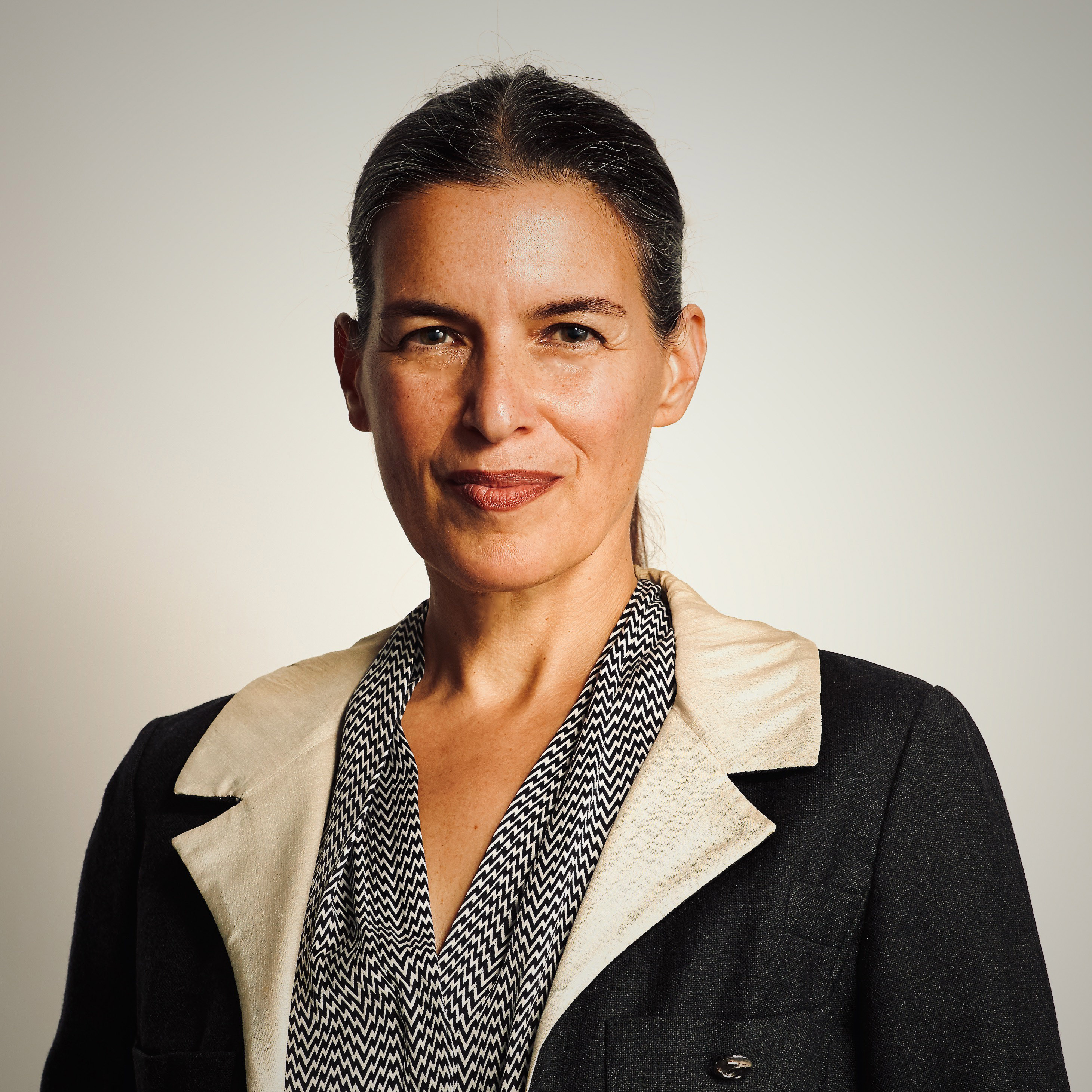
Tema Milstein
Tema Milstein’s work tends to ways culture and communication shape ecological understandings, identities, and actions. Her recent edited books, the Routledge Handbook of Ecocultural Identity (2020) and Environmental Communication Pedagogy and Practice (2017), explore the centrality of the ecological in our lives and our learning. She is an Associate Professor of Environment & Society in the Faculty of Arts, Design & Architecture at UNSW Sydney, and convenor of the Master of Environmental Management program.

